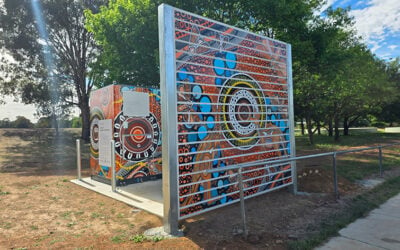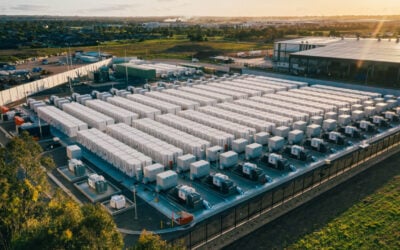Enphase AC battery. Image: Enphase Energy.
Enphase CEO Paul Nahi has said that the “unique” modularity of the company’s battery solution could be “incredibly valuable” to help it to meet the needs of customers in regions including Australia, where there is a “real economic case” for energy storage.
Nahi told analysts in a quarterly earnings call on Tuesday that “excitement” around the economic attractiveness of installing energy storage in combination with PV in the Australian states of Queensland and New South Wales, in the UK and in Continental Europe, was “palpable”. Specifically, he said, there were “real economic cases” around a newly introduced zero grid exporting rule in Queensland and the early closing of the feed-in tariff (FiT) in New South Wales, the paid-per-kWh generation FiT in the UK and the need to consume electricity on-site in mainland Europe as FiTs are drastically reduced or cut altogether.
Australia in particular appears to have become a big talking point in solar-plus-storage over the past few weeks. The country’s government, led by prime minister Tony Abbott, which is in firm denial over the threat of climate change, has cut both support schemes and renewable energy targets. PV Tech Storage reported this week that the end of New South Wales’ regional FiT for PV could allow storage to step in and boost the economic case for solar.
Analyst’s questions
Try Premium for just $1
- Full premium access for the first month at only $1
- Converts to an annual rate after 30 days unless cancelled
- Cancel anytime during the trial period
Premium Benefits
- Expert industry analysis and interviews
- Digital access to PV Tech Power journal
- Exclusive event discounts
Or get the full Premium subscription right away
Or continue reading this article for free
In a Q&A which followed Nahi and Enphase CFO Kris Sennesael’s guidance on the results, analyst Philip Shen of Roth Capital Partners, said he had observed “a lot of discussions among investors” comparing Enphase’s energy storage offerings to its competitors’. Shen asked Nahi to outline what differentiated the product from its rivals, especially in light of the system’s seven stages of power conversion, as opposed to one stage, as used in some rival devices.
“Let me start by saying that the modularity of our solution is very unique and incredibly valuable. When you talk to customers Australia, in the UK and Continental Europe, the ability to ‘right size’ the storage solution for that specific application, for that specific customer, is critical in optimising the return on investment.”
Nahi said the AC battery, which is not coupled to a solar system but instead interacts with the PV through the total system’s energy management software and devices, allows customers to have tailor their system size to their regional and individual needs. The company’s boss also played up the ease of the battery’s installation process.
Enphase’s CEO also said the company’s AC battery would compare favourably with some rivals in terms of round-trip efficiency, which he said was between 96% and 97%. He said that some competitors were also using seven stages of conversion, and also pointed out that the Enphase battery will be able to run 11,000 cycles in its lifetime, which he said was more than double the life of some other storage batteries.
Installers were already interested in retrofitting the battery to existing PV systems, which Nahi claimed can be done by one person in a “few hours”.
Similarly, in response to another question in the Q&A, Nahi confirmed that Enphase batteries will retrofit to non-Enphase systems, and vice versa. He praised the company’s current battery partner, Japanese firm Eliiy Power, as “outstanding” but said Enphase was battery and chemistry agnostic.
Enphase made a name for itself in solar with its software-defined module-level power electronics and has been preparing the extension of its business into storage for some time, planning to leverage much of the data it already collects from installed Enphase microinverters and complete systems. Paul Nahi recently told PV Tech Storage that he believes that within a “couple of years” PV will be sold almost exclusively in combination with energy storage and energy management systems that are likely to rely on that data.
Q2 results
Enphase, headquartered in California, released its Q2 results, for the period ending 30 June, yesterday. It reported record quarterly shipments of its microinverter systems, up 48% year-on-year, with 195MW of AC microinverter systems shipped, while revenues were at US$102.1 million, again representing an increase, this time of 25% year-on-year.
In an earnings call to explain results, CEO Nahi said the company’s “core US residential markets” as well as Europe and Australia had seen strong demand.
Read an interview with Enphase co-founder and vice president of marketing Raghu Belur from earlier this year on designing the AC battery.





